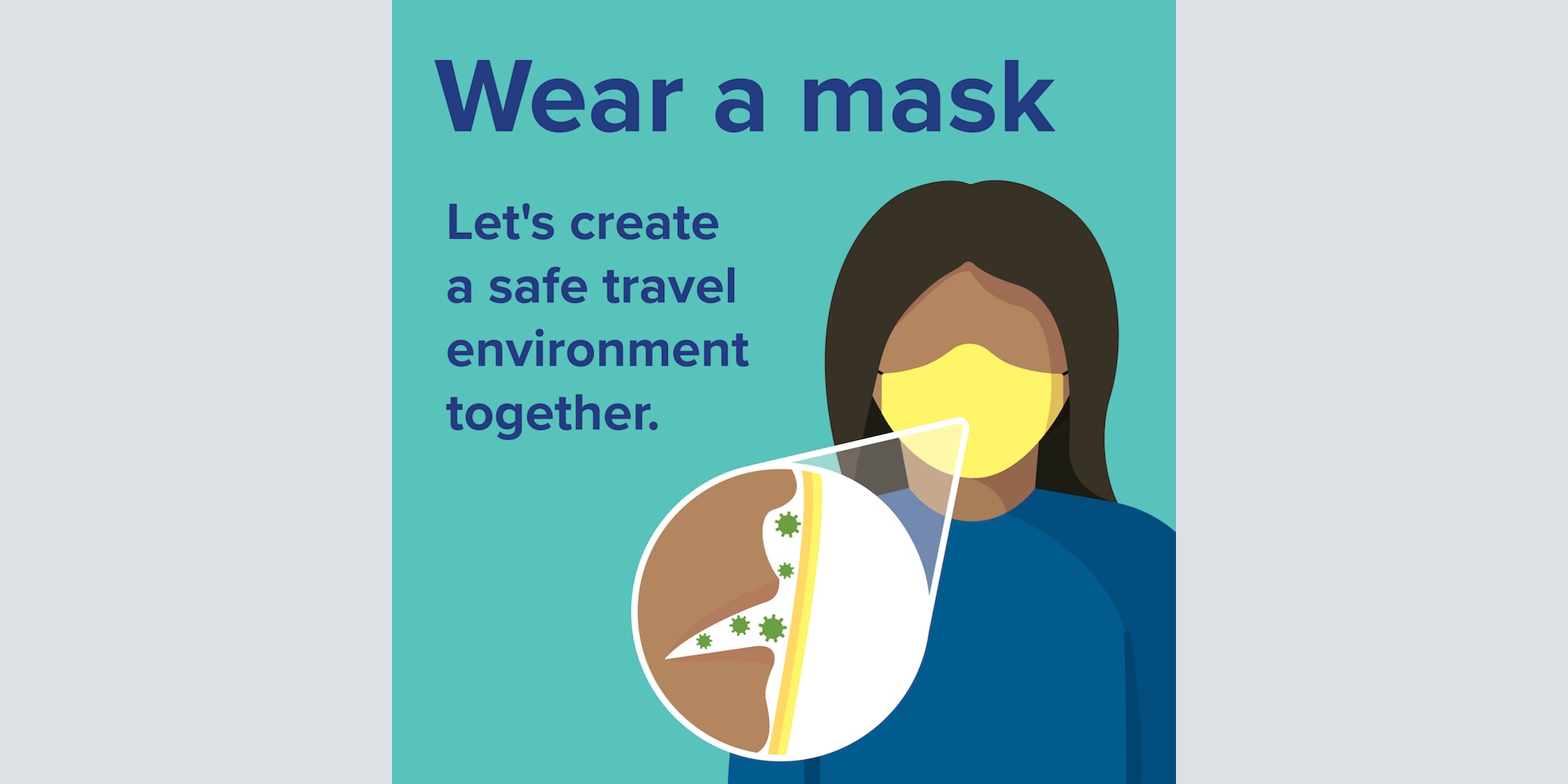
Face coverings: the simple and important tool we can all use to protect one another
RTD passengers are required to wear face coverings on buses and trains and while waiting or using stations and stops, unless they have a disability that inhibits the use of a face covering. We’d like to clear up any confusion about that, as public health experts at all levels say face coverings help prevent potentially deadly cases of COVID-19.
Everybody wants to get the region moving again, back to work and to school and to busy lives. Everyone in public health tells us that if we can keep virus transmission down with face coverings, handwashing and social distancing, the entire economy can revive more quickly.
While Colorado as a whole has not required mask use in public, state health officials strongly recommend it. Denver and other metro-area cities require it, and RTD is following and endorsing those requirements.
Mask use is backed by science. The University of Washington's Institute for Health Metrics and Evaluation found that if 95% of Americans wore face masks in public, it could prevent 33,000 deaths by Oct. 1. It's as important as handwashing and social distancing, according to public health experts at the federal level, through the state health department, and down through local health departments ranging from Denver to Jeffco to Tri-County Health. The Centers for Disease Control and Prevention (CDC) webpage about the use of cloth face coverings includes dozens of supportive study links.
RTD consults with the CDC, the state and cities multiple times a week, and continues to follow their recommendations regarding everything from the use of face coverings to sanitizing buses and trains to standards in personal protective equipment.
RTD backs up this requirement for passengers with what we ask of our own employees. All operators and other RTD employees are required to wear a face covering when in public spaces or encountering coworkers. To help meet this requirement, we issue cloth masks or N95 respirator masks to all employees, depending on public health recommendations and Occupational Safety and Health Administration (OSHA) requirements for where they work.
We are also beginning to issue new plastic face shields to operators, with a hinged closure similar to a welding mask, which are even more effective and comfortable. In addition, we are fabricating and installing barriers on buses between operators and passengers, a project expected to take some months to complete as we acquire the needed polycarbonate material.
You may look around and see people not wearing face coverings. Although compliance has been good on most routes, it could be better on many routes. RTD communicates the face covering requirement through social media, website, signage and audible messages on all vehicles. RTD simply doesn’t have enough security personnel to station on all of our 1,000 buses and 300 trains for enforcement purposes.
Operators are asked to encourage passengers who are not wearing a face covering to do so. If operators have extra face coverings available, they can offer one to those who do not have one. We do not, however, want to see confrontations with passengers. We're relying on our riders to do the right thing.
You may see a bus pass by a stop with riders waiting. This is not because they are not wearing face coverings. Operators will stop when they can, and encourage boarding riders to put on their masks. But we are also following social distancing rules on buses and trains, with 6 feet between passengers. When a bus reaches 15 riders, operators are instructed to not pick up additional riders. We are adding buses on high ridership routes to pick up those passengers.
Overall, we believe our safety systems are working very well. Only 13 RTD employees out of 3,500 have tested positive, and none was at work after showing symptoms. RTD was far out in front of CDC recommendations in keeping workers home at any sign of illness.
In short, we ask: Just wear a face covering. It will help keep you and others as safe as possible.